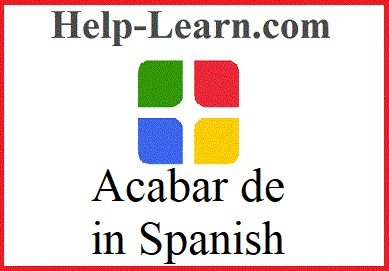
The verb gustar explained in simple English plus more
This article explains in plain English how to use the Spanish verb gustar and similar verbs encantar and caer bien.

10 French words which change to ones with an apostrophe
This article talks about 10 French words which change to ones which use an apostrophe.
All the French words discussed in this article usually change when they are followed by a vowel or a h.
In short, an apostrophe represents a missing letter in French, but an apostophe is only used with certain French words. This article discusses them.

How to say has been -ing (or have been -ing) in Spanish
This article discusses the main ways of saying someone has been doing something in Spanish, namely using desde hace (or hace) and the alternative of using the verb llevar.
This article discusses each in turn.

Present Tense Irregular German Verbs
This article discusses key irregular present tense verbs in German and some patterns which may help you to learn them. This article deals with modal verbs, stem-changing verbs as well as haben and sein.

How to use Acabar de in Spanish
Here we are going to look at using acabar de to say that someone or something has (or had) just done something.

What are Spanish stem-changing verbs?
In Spanish some verbs have a spelling change in the verb stem in the present tense. Here regular stem-changing verbs are discussed in terms of how they work, why they exist and when to know when a verb is stem changing.

Key differences between Direct and Indirect Objects
This article is an introduction to direct and indirect objects. This article is aimed at learners of the French, Spanish & Italian languages.

Foreign Language Terminology
If you are having trouble with foreign language terminology in Spanish, French, Italian and German this guide is for you.
It will give you a better understanding of some key foreign language terminology in relation to the Spanish, French, Italian and German languages.
It is designed to be a quick reference, rather than a detailed reference, but other articles are available on this site by clicking on ´Learning Tips´ towards the top of this page.
This guide only relates to Spanish, French, Italian and German, so other languages are not considered.

What is the German case system and how does it work?
In German there are four cases, namely the nominative, the accusative, the dative and the genitive.
This article introduces you to the main differences and uses of these German cases. Some details have been left out to avoid overcomplication, but the article should give you a better understanding on German cases generally.

What are French Pronouns and how do they work?
French pronouns are the subject of this article. It should give you a better feel for how they are individually used and the differences between them.
Some details have been left out to avoid complication, but the article explains the main uses of French pronouns. The aim is to give you a feeling for which type of French pronoun to use when.

What exactly are reflexive verbs?
Language learners often get confused over what exactly reflexive verbs exactly do. Many people also don´t understand why they exist at all and their purpose. This article will explain reflexive verbs and more.

Using Tener in Spanish
In just a few minutes you could learn how to use the verb Tener in Spanish. This article talks about how Tener is used and common expressions, such as Tengo hambre (I am hungry), Tengo sed (I am thirsty), etc.

Top Nine Reasons for Using a Language Tutor
In this article you will discover how a language tutor could help you to learn a language and improve your foreign language speaking skills.
Learning a foreign language with a language tutor can be a rewarding experience. A tutor can help motivate you as well as give you confidence speaking a language.

Spanish words for "you" - tú, usted, vosotros/as and ustedes
The Spanish language has four words for you (Tú, Usted, Vosotros, Vosotras and Ustedes). They can be confusing, particularly to beginners, but are very logical. This article explains the differences and what endings to use in the present tense.

Key Spanish Language Phrases for Holidays
This article sets out key Spanish Language phrases you need for holidays, including how to ask for items in shops, asking directions, ordering food in restaurants and more.
It provides the core phrases you need for any holiday to Spain (or a Spanish speaking country in South America).

8 essential French Phrases for Shopping Trips
So you need to learn some French for a shopping trip in France.
This quick and easy guide tells you some essential French language vocabulary to help you to learn how to communicate quickly and effectively in French shops.

Learn Italian Restaurant Vocabulary
This Italian language article will teach you some Italian restaurant vocabulary and phrases in no time.

Most useful German Phrases for Holidays
This article sets out the most important German phrases you need for holidays to a German speaking country. It includes the German phrases you are most likely to use on a trip to Germany.

Ser and Estar in Spanish
This article explains when to use Ser and Estar in Spanish in plain English. After reading this article you will understand when you use estoy or soy for I am in Spanish.

How to Say Here and There in Spanish
This post explains the different words for here and there in Spanish (Aquí, Acá, Ahí, Allí and Allá) as well as the Spanish word hay.

Learning Foreign Language Phrases for Holidays
You may dream of learning the basics of a foreign language to impress your friends & family on a holiday. This article talks about the reasons for learning holiday language vocabulary and how to do so.